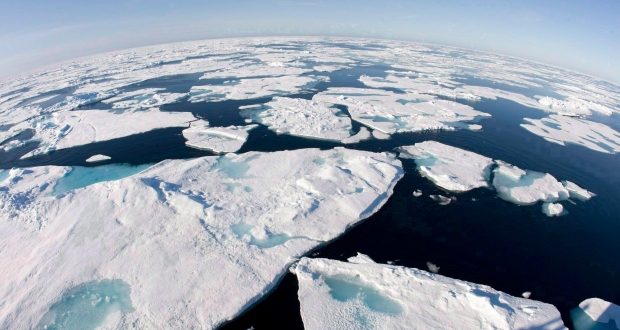Climate change is the biggest health threat of the 21st century, according to the World Health Organization (WHO).
Canada has already seen smoke-related health impacts and stressful evacuations as the result of increased wildfires; the spread of Lyme disease; and food security and mental health challenges related to rapid changes in the Far North, which is two to three degrees Celsius warmer than it was in the 1950s.
Here’s How Canada’s Provinces Are Responding To Climate Change
New Brunswick banned fracking
Last month, lawmakers in New Brunswick voted to place a moratorium on fracking within the province.
The eastern province will conduct a one-year study on the oil and gas extraction process and reconsider the ban in 2016. Before the moratorium is lifted, the province must meet five conditions, including providing “clear and credible information” on the health and environmental impacts of fracking, developing a process for consulting with First Nations, and creating a plan that deals with issues including wastewater disposal.
“It is responsible and prudent to do our due diligence and get more information regarding hydraulic fracturing,” New Brunswick Energy and Mines Minister Donald Arseneault said in a statement.
Fracking presents multiple environmental and emissions concerns, so New Brunswick’s plan to study the practice before pursuing the practice further has been praised by environmentalists. But New Brunswick Premier Brian Gallant has made it clear that, even though the ban is in place, his province is still pro-energy production.
“We are very much for natural resource development,” he said. “We’re very much for energy projects here in the province.”
New Brunswick joins the eastern provinces of In Newfoundland and Labrador in instituting a temporary fracking ban. Nova Scotia also announced last year that it would be implementing an indefinite ban on fracking.
Vancouver said it would go 100 percent renewable
Vancouver, British Columbia announced this month that the city was committing to get all of its energy from renewable sources by 2030 or 2035. Right now, Vancouver gets 32 percent of its energy from renewables, so the commitment represents an ambitious plan to shift the city away from dirtier sources of energy.
“The future of Vancouver’s economy and livability will depend on our ability to confront and adapt to climate change, and moving toward renewable energy is another way that Vancouver is working to become the greenest city in the world,” Mayor Gregor Robertson said in a statement.
As a city — not a province — Vancouver’s commitment won’t make as much of a difference in overall emissions reductions as plans and goals from provinces. But British Columbia is already leading Canada in terms of carbon regulation: it’s the only Canadian province with a carbon tax, a policy that’s been hailed as a success environmentally, economically and among residents in the province.
Agencies/Canadajournal
 Canada Journal – News of the World Articles and videos to bring you the biggest Canadian news stories from across the country every day
Canada Journal – News of the World Articles and videos to bring you the biggest Canadian news stories from across the country every day



